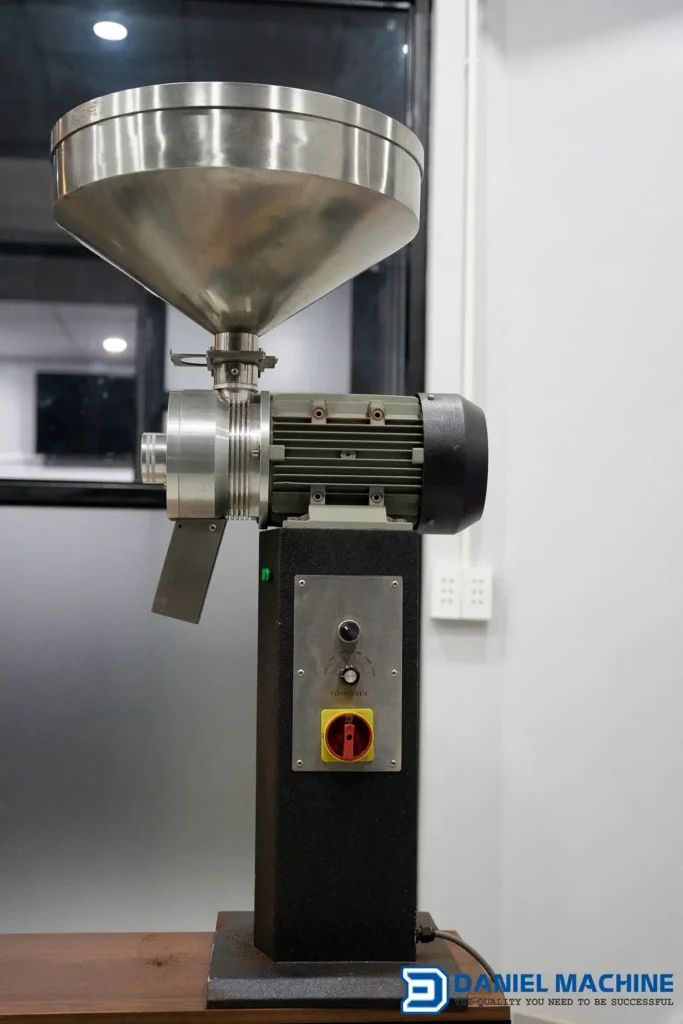Industrial Coffee Grinder Shopping Guide for Expert Coffee Makers
Industrial Coffee Grinder Shopping Guide for Expert Coffee Makers
Blog Article
Industrial Coffee Mill Guide: Boost Efficiency and Quality
In the affordable landscape of coffee production, selecting the right commercial coffee mill plays an essential role in boosting both effectiveness and item quality. Understanding the nuances of different grinder types and crucial attributes-- such as personalized work setups and durable construction-- can significantly affect the last flavor profile of the coffee. The optimization of the grinding process, combined with diligent upkeep, is vital for sustaining performance over time. As we discover these important elements, it ends up being evident that the implications prolong beyond mere devices choice, influencing general business success in ways that warrant closer assessment.
Recognizing Mill Types
When selecting an industrial coffee mill, understanding the various kinds offered is essential for enhancing both taste removal and operational efficiency. The 2 key kinds of mills are blade mills and burr mills.

Eventually, selecting the appropriate type of mill is integral to keeping high quality and effectiveness in coffee manufacturing, making it imperative for services to buy high-quality burr mills for optimal results.
Secret Attributes to Think About
Picking a commercial coffee grinder calls for mindful factor to consider of a number of essential features that can substantially affect both efficiency and the general coffee experience. Among the primary elements to review is the grinding mechanism. Burr mills are typically favored over blade grinders, as they provide a consistent work dimension, which is important for ideal extraction and flavor.
One more vital attribute is the mill's capability. A versatile mill with numerous setups allows you to tailor the grind dimension to different brewing techniques, boosting the coffee's flavor profile.
The building and construction material additionally plays a function in durability and maintenance. Stainless steel elements usually supply long life and are much easier to clean, which is vital for maintaining health criteria. Evaluate the mill's sound degree, especially in an active coffee shop or manufacturing atmosphere, where excessive sound can be disruptive. Purchasing a mill that balances these functions can significantly enhance both operational effectiveness and the high quality of the coffee offered.
Optimizing Grinding Refine
To achieve the best results in coffee prep work, enhancing the grinding process is essential. The work size dramatically influences removal, flavor, and general high quality of the made coffee.


Furthermore, checking the grinding speed can optimize the procedure. Slower grinding frequently creates much less heat, maintaining delicate flavors and scents. Conversely, much faster grinding might produce extreme heat, More Bonuses adversely influencing the coffee's high quality.
Maintenance and Treatment Tips
Proper upkeep and care of commercial coffee mills are necessary for ensuring optimum efficiency and longevity. Normal cleansing is the structure of upkeep; residue buildup can influence flavor and grinding effectiveness. It is advisable to clean the mill after each usage, wiping down the exterior and removing any coffee grounds from the burrs.
Furthermore, check the grinding burrs for damage. Boring burrs can jeopardize grind consistency, so they need to be replaced as necessary. Industrial Coffee Grinder. Regularly calibrating the grinder is also vital, as this maintains the wanted work size for different brewing approaches
Lubrication of moving components must be performed according to the manufacturer's specifications, as this lowers rubbing and extends the life of the devices. It is important to use food-grade lubes to ensure safety and compliance with health and wellness laws.
Lastly, keep the mill in a completely dry and steady atmosphere to avoid corrosion and rust. By sticking to these maintenance and care pointers, operators can improve the effectiveness of their industrial coffee grinders while ensuring high-grade outcome and prolonged functional life.
Return on Investment Analysis
Reviewing the roi (ROI) for commercial coffee grinders is vital for organizations looking for to enhance their coffee manufacturing capabilities. A complete ROI analysis aids establish the financial practicality of investing in premium mills, permitting companies to weigh the first expenses against prospective gains.
Analyze the purchase rate of the mill, including installment and any kind of essential adjustments to existing framework. High-performance grinders frequently lead to minimized grinding time and enhanced throughput, which can substantially boost performance.
Furthermore, take into consideration the effect on item top quality. Industrial Coffee Grinder. Superior mills produce an even more constant work dimension, which can enhance taste accounts and customer fulfillment, ultimately driving sales. By boosting the high quality of the last item, services can validate higher Learn More Here rates, resulting in enhanced revenue
Final Thought
In recap, an industrial coffee mill plays a crucial duty in boosting both performance and item high quality within coffee manufacturing. By choosing premium burr grinders outfitted with important functions such as adjustable work setups and long lasting building, businesses can make sure optimum flavor removal. Additionally, routine upkeep is important for sustaining mill efficiency and optimizing customer fulfillment. Ultimately, the critical investment in a reliable mill contributes substantially to improved earnings and competition in the coffee industry.
In the affordable landscape of coffee production, picking the appropriate commercial coffee mill plays an essential role in boosting both efficiency and item high quality. The 2 key types of mills are blade grinders and burr mills. Within the burr mill group, there are flat burr grinders and cone-shaped burr mills, each with its advantages. Burr mills are typically chosen over blade mills, as they supply a regular grind dimension, which is vital for optimal extraction and taste.
In summary, a commercial coffee mill plays a crucial role in enhancing both performance and item top quality within coffee manufacturing.
Report this page